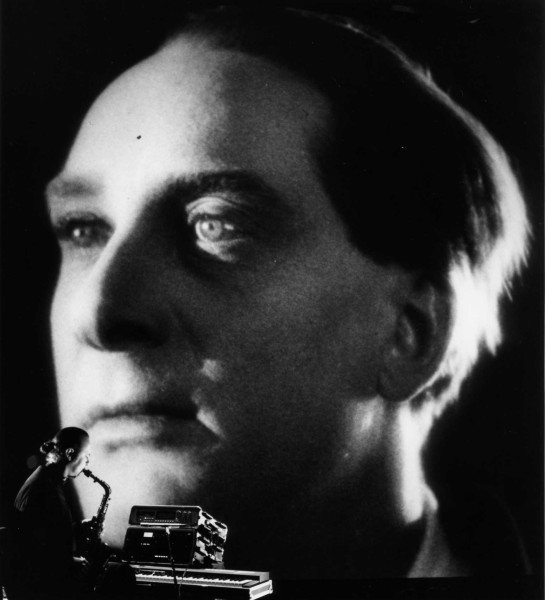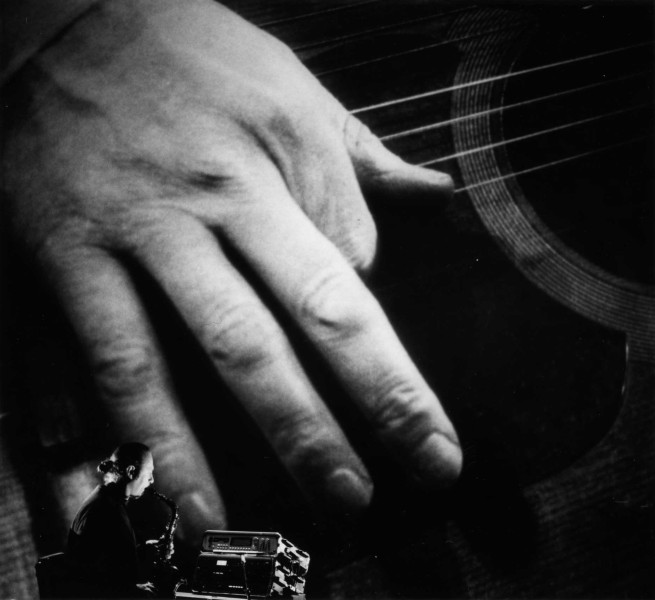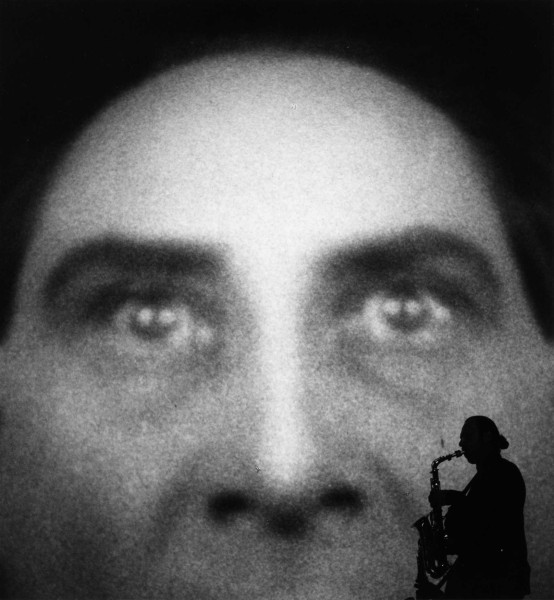La Chute de la Maison Usher
BL!NDMAN is once more showing its innovative side in the live accompaniment of a classic the silent film. After accompaniments of the Japanese avant-garde film Kurutta Ippeiji by Teinosuke Kinugasa and Buster Keatons comedy Steamboat Bill Junior, Eric Sleichim was guided by horror as central idea to close this triptych. On the stifling images of Epsteins masterpiece, Eric Sleichim wrote a 3-D soundtrack for alto saxophone, generating electronic effects. Parallel with the freakish hallucinations of the main character Roderick, he moulds the sound of his saxophone until one barely recognises the instrument.
The intense dialogue between musician and image submerges the public thus completely in the eccentric world of Edgar Allan Poe. On the stifling images of Epsteins masterpiece, Eric Sleichim wrote a 3-D soundtrack for alto saxophone, generating electronic effects. Parallel with the freakish hallucinations of the main character Roderick, he moulds the sound of his saxophone until one barely recognises the instrument. The intense dialogue between musician and image submerges the public thus completely in the eccentric world of Edgar Allan Poe.
This poetic horror film (1928) is one of the best examples of Epstein’s work. Based on different stories of Edgar Allan Poe it contains a compelling quality of atmosphere. In this film Jean Epstein gave a full range to his cinematic theories and rich avant-garde techniques. Using Poe’s stories as a starting point he created a highly stylised and personal work, – a distinct cinematic achievement. This film is marked by the intelligent use of various film devices, a sensitive and precise editing, a strong and calculated rhythm of movement, and an imaginative poetry. Very few other film directors have had such a cultivated sense for the image and for what Epstein himself called the ‘photogenie du Mouvement’.
Eric Sleichim: composition & surround effects, tubax, alto sax, percussion & electronics, programming of the automatic accordeon
Alex Fostier: sound editing
Philippe Van Leer: bruitage
Tony Decap : automatic accordeon
Alain Rylant: sound engineer
Jean Epstein: director and screenplay adapted from storys by Edgar Allan Poe’s The Fall of the House of Usher, The Oval Portrait, Ligeia, Silence and The Man of the Crowd
Luis Buñuel: assistant to the director
Jean Debucourt: actor: Roderick Usher
Marguerite Abel-Gance: actress: Madeline Usher
Charles Lamy: actor: the guest
Pierre Hot, Luc Dartagnan, Pierre Kéfer: actors
LA CHUTE DE LA MAISON USHER is a BL!NDMAN-production, commissioned by the Flanders International Filmfestival [25th edition] and Vooruit, in coproduction with deSingel and Ufa Fabrik-Berlin, with the help of the Royal Film Archive Brussels.
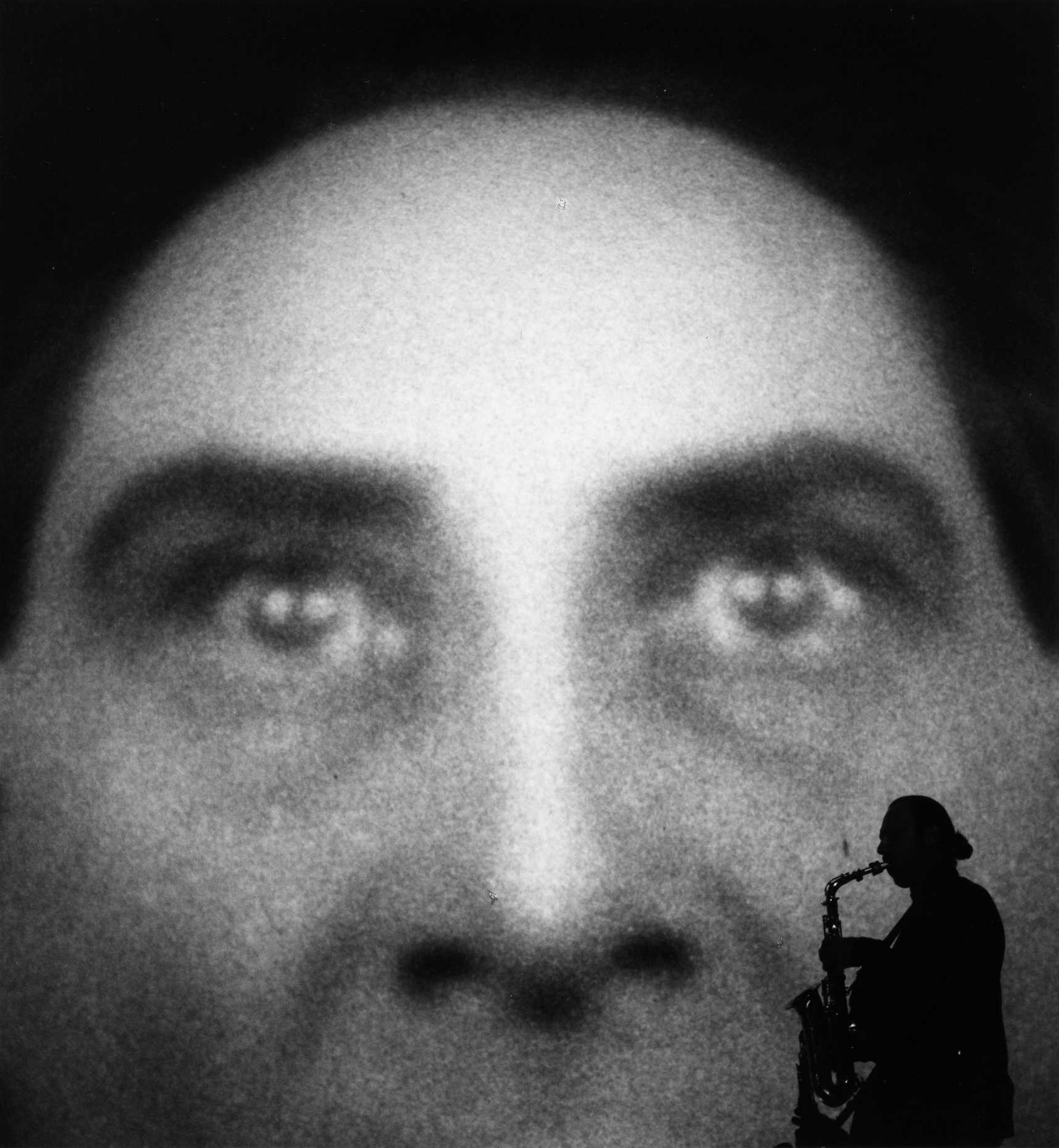
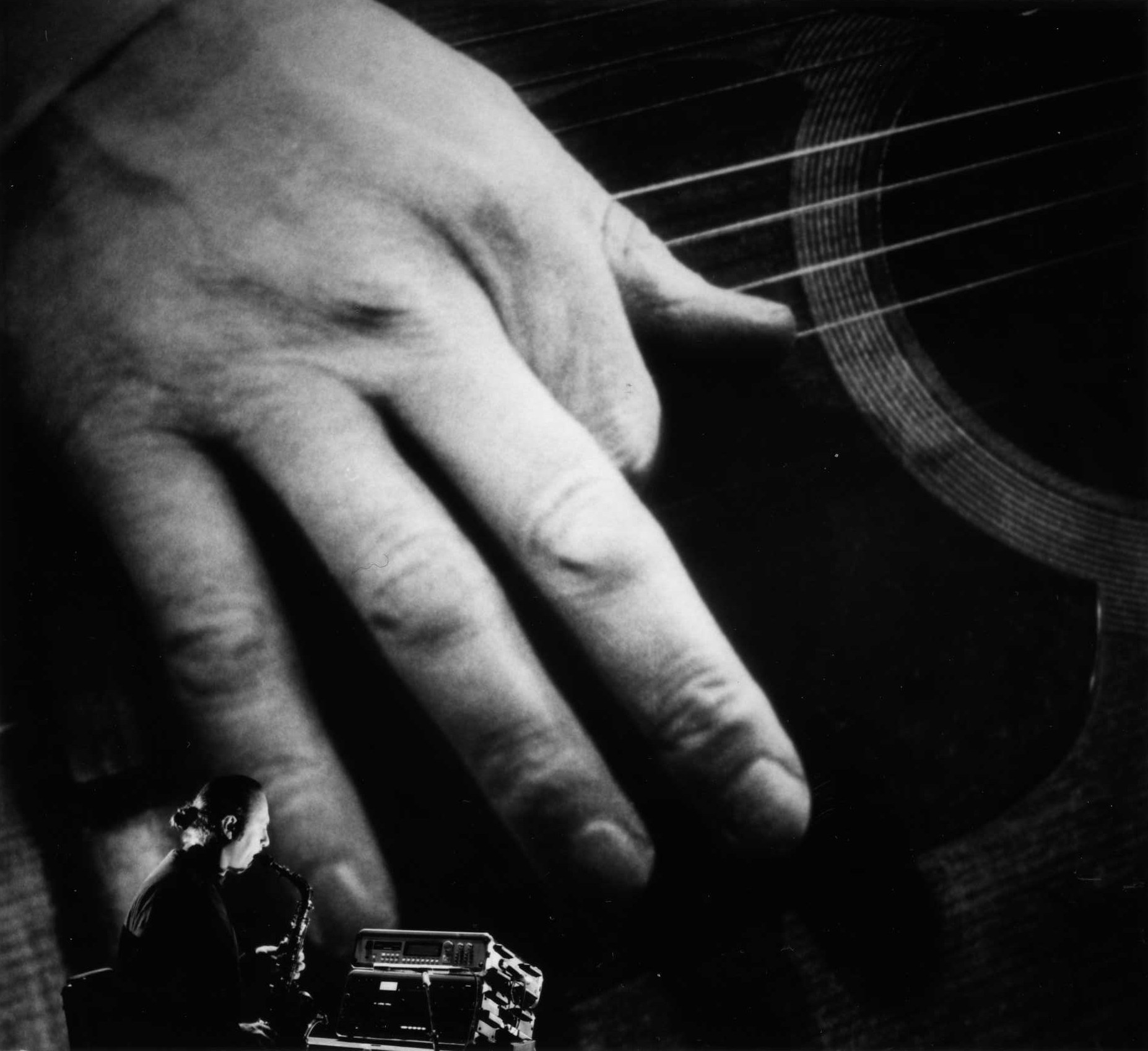
Agenda
The film
Roderick Usher, painting his wife’s portrait, finds that as the work progresses, life drains from the woman herself. When Madeline collapses and dies, Roderick sinks into an existence of torpor and monotony; yet paradoxically, his senses sharpen to a frustrating acuteness. One night, a sudden storm erupts with terrific force. Roderick watches and listens intently at the window … while lightning strikes the chateau and sets it afire, Madeline slowly arises from her grave and comes to him.The film implies that art that substitutes and ignores life in an urge to be perfect, is blind, perverse and finally self-destructive.
35mm restored & coloured copy, restored and coloured by royal film archive of Brussels with the collaboration of Cineteca del comune di Bologna from the original black & white negative (with french intertitels) of the Cinématheque française and the positive black & white and coloured nitrate copy of the Nederlands Filmmuseum.
